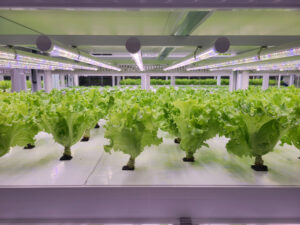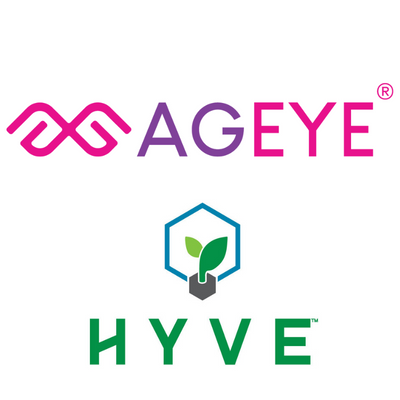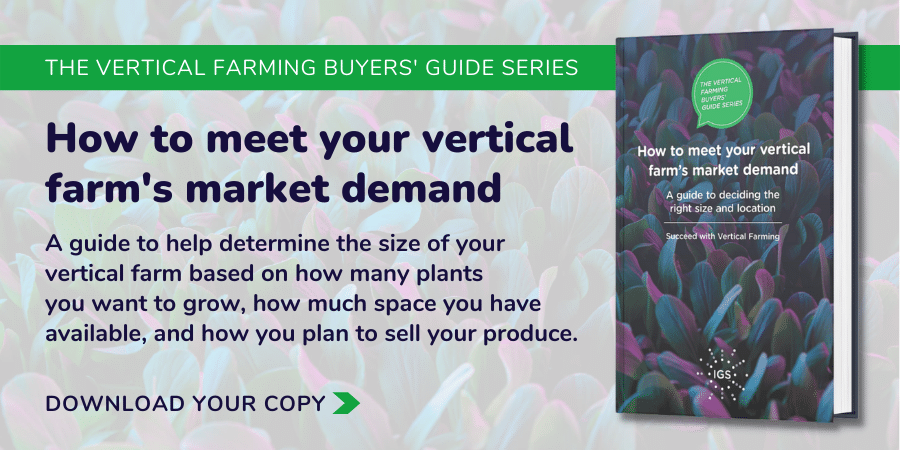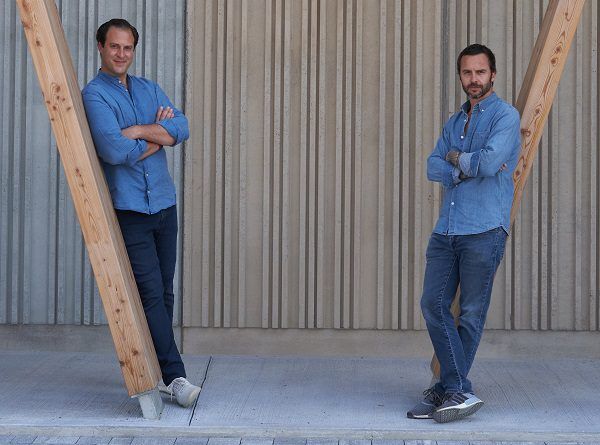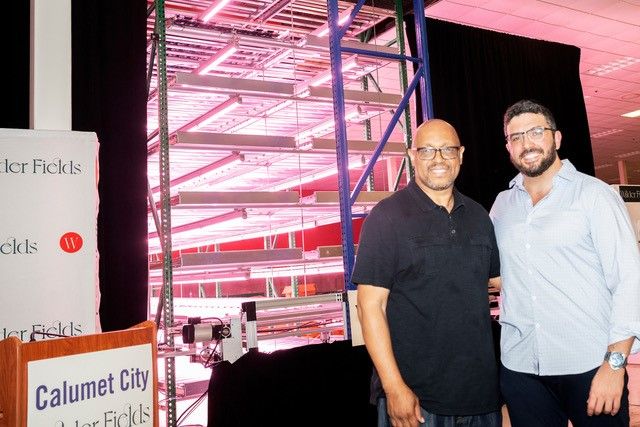Soli Organic CEO Matt Ryan will lead the day two opening morning keynote address for the 9th annual edition of Indoor Ag-Con, Feb. 28 – Mar. 1, 2022, at Caesars Forum, Las Vegas, NV. Themed “Growing Your Business,” the premier trade show and conference for indoor|vertical farming and controlled environment agriculture will give attendees the opportunity to explore new resources on the expo floor and hear from Ryan, other CEO headliners, thought leaders and industry experts from today’s cutting-edge farms and CEA companies.
Soli Organic, formerly known as Shenandoah Growers, Inc., is the nation’s only soil-based, controlled environment agriculture company delivering 100% USDA certified organic produce to more than 20,000 retail stores nationwide . The new name — Soli Organic — which is derived from the Latin word for soil, reflects the pivotal role of soil in enabling the company’s mission to make low-cost, high-quality, organic produce grown nearby available to everyone.
During his keynote presentation on March 1, 2022, 8 – 8:50 AM, Matt Ryan will share more about his company’s plans to change the world of organic produce by “Bringing Nature Indoors” ™ with its soil-based, certified organic biofarms.
With 7 growing facilities, 12 operating facilities, 20,000 retail locations served and well over a hundred million units of fresh herbs and greens annually, the company is just getting started. The recently announced $120 million financing arrangement with leading real estate development firm Decennial Group is a key component of the Company’s strategy to further expand production capacity to meet growing demand.
As CEO, Matt’s focus is on strengthening the company’s competitive advantages and achieving scaled topline growth. Prior to his role at Soli Organic, Matt served as both the chief marketing officer and the chief strategy officer at Starbucks where he developed and executed strategy, managed the food and beverage portfolio, instituted a data analytics function, oversaw the development of the digital experience, and led all other marketing, product, brand, and consumer functions. As the head of brand management for The Walt Disney Company, he oversaw the company’s brand management, brand development, franchise management, customer data, and CRM.
Ryan currently sits on the Board of Directors for Kaiser Permanente. He received a Bachelor of Arts from Harvard University, graduating magna cum laude.
Learn more about Matt Ryan and his Indoor Ag-Con keynote session here.
“We are thrilled to have Matt join us in Las Vegas,” says Brian Sullivan, CEO, Indoor Ag-Con LLC . “From his proven leadership roles with Starbucks and Walt Disney to his exciting vision for Soli Organic, Matt brings a unique perspective to our keynote stage.”
ROBUST 2022 CONFERENCE SCHEDULE NOW IN DEVELOPMENT
Matt Ryan joins the Indoor Ag-Con 2022 CEO headliner keynote line-up, which also includes the opening morning kick-off session with Steve Platt, CEO, BrightFarms and Steven Bradley, VP, Cox Cleantech, Cox Enterprises; and a day one mid-morning session from Jonathan Webb, CEO | Founder, AppHarvest. The 2022 conference will also include a full roster of panel discussions offering a deep dive into three core tracks – Grower, Business & Technology – as well as panel sessions on the expo floor theater.
Attendees will find more new initiatives and show highlights to explore in February, including:
CO-LOCATION WITH NATIONAL GROCERS ASSOCATION SHOW
New for 2022, Indoor Ag-Con will co-locate with the National Grocers Association (NGA) Show, the leading trade show and conference for independent grocers, offering even more networking and business opportunities for attendees and exhibitors alike. The NGA Show and Indoor Ag-Con visitors will have access to all exhibits, and discounts will be available for cross-over educational event attendance. Look for more details coming soon.
EXPANDED EXHIBIT FLOOR
2022 will also welcome the largest expo floor yet for Indoor Ag-Con. From irrigation and LED lighting to environmental control systems, substrates, greenhouse equipment, energy solutions, business services and more, attendees will have the chance to see the latest introductions and innovations from some of the biggest names in the business, as well as emerging leaders.
MORE NETWORKING
Exhibitors and attendees can enjoy complimentary luncheons on the show floor each day, a show floor cocktail reception, breakout sessions and other opportunities to reconnect with friends and meet new business partners.
QUICK FACTS:
WHEN: Monday, Feb. 28 – Tuesday, Mar. 1, 2022
WHERE: Caesars Forum, 3911 Koval Lane, Las Vegas, NV 89101
INFO: For information on exhibiting or attending visit www.indoor.ag or email suzanne@indoor.ag
ABOUT INDOOR AG-CON LLC
Founded in 2013, Indoor Ag-Con has emerged as the premier trade event for vertical farming | indoor agriculture, the practice of growing crops in indoor systems, using hydroponic, aquaponic and aeroponic techniques. Its events are crop-agnostic and touch all sectors of the business, covering produce, legal cannabis |hemp, alternate protein and non-food crops. In December 2018, three event industry professionals – Nancy Hallberg, Kris Sieradzki and Brian Sullivan – acquired Indoor Ag-Con LLC, setting the stage for further expansion of the events globally. More information: https://indoor.ag
ABOUT SOLI ORGANIC
Founded in 1989 as Shenandoah Growers, Inc., Soli Organic Inc. is the leading grower and marketer of fresh organic culinary herbs in the United States, providing sustainable, USDA certified organic, regionally grown produce to retailers coast-to-coast. The Rockingham, Virginia-based company has developed the nation’s largest commercial indoor organic, soil-based growing system and continues to redefine how to bring fresh, organic, and sustainably farmed produce to market – operating across a nationally integrated platform of farms, production, and logistics facilities. For more information, please visit www.soliorganic.com.
 From Vertical Farm Daily — U.S. Senator Debbie Stabenow (D-MI), Chairwoman of the Senate Agriculture, Nutrition, and Forestry Committee, successfully restored $8.5 million in funding for the Office of Urban Agriculture and Innovative Production in the Senate-passed Agriculture, Rural Development, Food and Drug Administration, and Related Agencies Fiscal Year 2024 Appropriations Bill. The Office assists urban, small-scale, and innovative producers with technical and financial assistance that supports community farms and gardens, and rooftop, indoor, and vertical farms and other innovative production. Together, this increases greenspaces in communities, access to fresh, local foods, and new pathways to jobs in agriculture.
From Vertical Farm Daily — U.S. Senator Debbie Stabenow (D-MI), Chairwoman of the Senate Agriculture, Nutrition, and Forestry Committee, successfully restored $8.5 million in funding for the Office of Urban Agriculture and Innovative Production in the Senate-passed Agriculture, Rural Development, Food and Drug Administration, and Related Agencies Fiscal Year 2024 Appropriations Bill. The Office assists urban, small-scale, and innovative producers with technical and financial assistance that supports community farms and gardens, and rooftop, indoor, and vertical farms and other innovative production. Together, this increases greenspaces in communities, access to fresh, local foods, and new pathways to jobs in agriculture.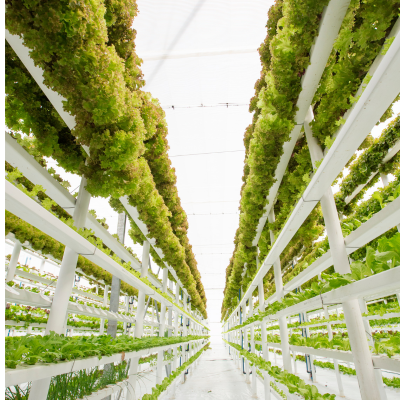
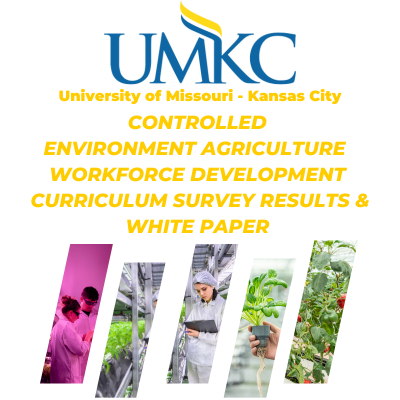

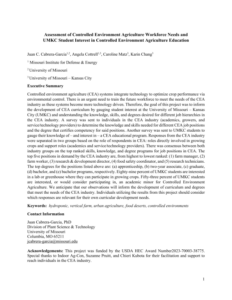
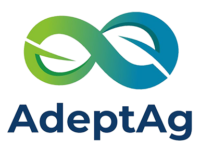
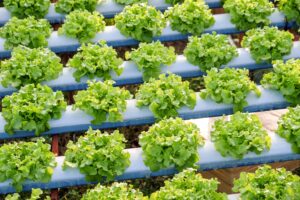 The concept of Vertical Farming is not as contemporary as it might seem, with roots plunging deep into ancient history, as far back as the Hanging Gardens of Babylon in 605 BCE. However, it wasn’t until the 20th century that it truly began to blossom as a practical method of farming. The turning point was during WWII, when hydroponics—a subset of Vertical Farming—was employed on a large scale to feed the Allied Forces in the South Pacific, yielding over 8,000 tons of produce. The concept was refined further at Columbia University between 1991 and 1999, under the guidance of Professor Dr. Dickson Despommier. Now hailed as the father of modern Vertical Farming, Despommier and his students successfully devised a way to sustainably feed New York City’s populace via rooftop agriculture, birthing the contemporary approach to multi-story farming.
The concept of Vertical Farming is not as contemporary as it might seem, with roots plunging deep into ancient history, as far back as the Hanging Gardens of Babylon in 605 BCE. However, it wasn’t until the 20th century that it truly began to blossom as a practical method of farming. The turning point was during WWII, when hydroponics—a subset of Vertical Farming—was employed on a large scale to feed the Allied Forces in the South Pacific, yielding over 8,000 tons of produce. The concept was refined further at Columbia University between 1991 and 1999, under the guidance of Professor Dr. Dickson Despommier. Now hailed as the father of modern Vertical Farming, Despommier and his students successfully devised a way to sustainably feed New York City’s populace via rooftop agriculture, birthing the contemporary approach to multi-story farming.